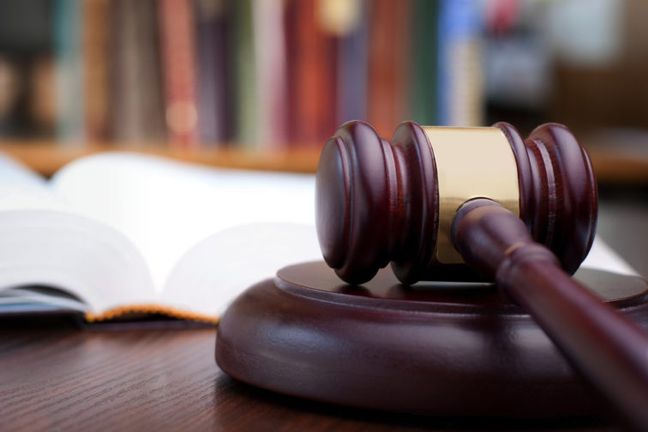Arizona courts have remained open to serve the public, adjusting in-court practices and operations to continue moving cases forward despite the restrictions imposed by COVID-19. Beginning on June 1, 2020, Arizona courts will begin to transition to in-person proceedings to the extent they can be safely accomplished, and on June 15, 2020, jury trials may resume, subject to the discretion of the presiding judge.
On May 20, 2020, Arizona Supreme Court Chief Justice Robert Brutinel issued Administrative Order 2020-79 for resuming operations of Arizona courts in phases (the “Order”), providing Arizona courts and the public with direction on the return to in-court operations. The Order grants the presiding superior court judge, and the chief judge of each court of appeals division, with discretion in determining new procedures for in-person court proceedings and courthouse activities. That discretion should take into consideration (1) the state of the pandemic, (2) the size and functionality of the courthouse facilities, such as courtrooms and public areas, and (3) the size of the bench and supporting court staff of each local court jurisdiction. Activities are to be carried out in a manner that protects the health and safety of all participants. The Order also strongly encourages courts to continue using virtual hearings, electronic recording, and electronic transmission to the extent possible through all phases until Phase IV: where court activities resume as normal.
The following portions of the Order are specific to Arizona civil court proceedings:
- Judges are directed to liberally grant continuances and make accommodations when necessary and possible for attorneys, parties, victims, witnesses, jurors, and others with business before the courts who are at high risk of illness or who report exposure, symptoms, or diagnosis of COVID-19.
- For cases where a jury trial has not been waived, due to limited courthouse facilities or judicial or court personnel, cases shall resume in an order of priority, wherein civil and other jury trial cases come in last behind criminal matters.
- For specific issues raised in a specific case where courthouse facilities or judicial or court personnel is limited, cases shall be scheduled in the following order of priority: 1) juvenile; 2) criminal; 3) mental health; 4) family matters involving minor children; 5) family matters not involving children; 6) probate involving protected persons; 7) civil; 8) general probate; and 9) tax and administrative cases.
- Rule 42.1, Arizona Rules of Civil Procedure provides litigants with a change of judge as a matter of right. This rule has been suspended until December 31, 2020 to protect the health and safety of out-of-county judges and to ensure adequacy of judicial resources.
- Rule 47(e), Arizona Rules of Civil Procedure provides litigants with peremptory strikes as a matter of right. This rule has been modified until December 31, 2020 to limit each side only two peremptory strikes for potential jurors on all civil cases tried in limited jurisdiction courts.
- Rule 38.1(d)(2), Arizona Rules of Civil Procedure requires courts to dismiss an action on the dismissal for 60 calendar days without prejudice. The period of March 18, 2020 through August 1, 2020 is excluded from the calculation of time.
- Notwithstanding Rule 6(b)(2), Arizona Rules of Civil Procedure, the court may extend the time to act under Rules 50(b), 52(b), 59(b)(1), (c), and (d), and 60(c) as those rules allow, or alternatively, may extend the time to act under those rules for 30 days upon a showing of good cause until August 1, 2020.
- Rule 50(b) provides litigant with the opportunity to motion for a new trial or renewing the motion after trial;
- 52(b) provides litigants with the opportunity to motion for amended findings or additional findings;
- 59(b)(1), (c), and (d) provide litigants with the opportunity to motion for a new trial, amend findings, or alter a judgment; and
- 60(c) provides litigants with no more than six months to seek relief from a judgment or order.
Despite the unprecedented effects COVID-19 has inflicted on the judicial systems throughout the United States and around the world, the Arizona judicial branch is creating innovative ways to continue to ensure the safety and welfare of all participants. Likewise, Tyson & Mendes continues to move cases toward resolution to the full extent permitted by the Arizona courts.

 Cannabis Workers Allege Quota to Trim 4 Pounds a Day Violates the California Labor Code
Cannabis Workers Allege Quota to Trim 4 Pounds a Day Violates the California Labor Code
 The Ninth Circuit Reminds Us: Every Word Matters
The Ninth Circuit Reminds Us: Every Word Matters
 NO WAY, PRO SE! The Consequences of Abusing the Judicial System as a Pro Se Litigant in Colorado
NO WAY, PRO SE! The Consequences of Abusing the Judicial System as a Pro Se Litigant in Colorado
 Victim of Financial Mismanagement or Unlawful Retaliation? New Jersey City University Program Founder Claims School Retaliated After Reporting Alleged Sexual Harassment
Victim of Financial Mismanagement or Unlawful Retaliation? New Jersey City University Program Founder Claims School Retaliated After Reporting Alleged Sexual Harassment
 “Real Housewives” Gets a Reality Check
“Real Housewives” Gets a Reality Check
 Missing a Chapter: Insufficiency of Expert Deposition Testimony in Medical Malpractice Litigation
Missing a Chapter: Insufficiency of Expert Deposition Testimony in Medical Malpractice Litigation
 Crash Course: Why Summary Judgment Misses the Mark in Illinois Multi-Cause Limousine Crash Collision
Crash Course: Why Summary Judgment Misses the Mark in Illinois Multi-Cause Limousine Crash Collision
 Bitter Truths: Lead, Cadmium, and Defective Pleadings in California Chocolate Class Action
Bitter Truths: Lead, Cadmium, and Defective Pleadings in California Chocolate Class Action
 The Law of Unintended Consequences: Including Insurance Brokers in Litigation Strategy Communication May Waive the Attorney-Client Privilege
The Law of Unintended Consequences: Including Insurance Brokers in Litigation Strategy Communication May Waive the Attorney-Client Privilege
 Arizona Supreme Court Holds Balance Billing by Hospitals is Prohibited
Arizona Supreme Court Holds Balance Billing by Hospitals is Prohibited
 Arizona Case Law Update
Arizona Case Law Update